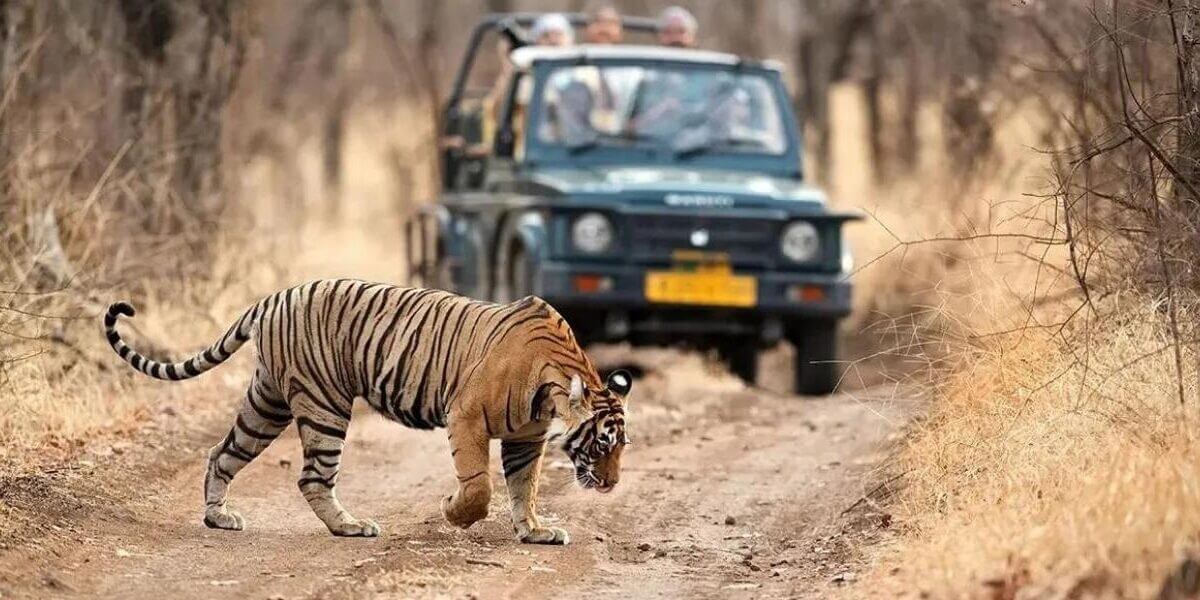What was meant to be an adventurous tiger safari in Ranthambore National Park turned into a distressing experience for 20 tourists when their safari canter broke down deep inside the forest. The incident took place in Zone 6 of the reserve on the evening of August 16, leaving families with children stranded in the wilderness for more than 90 minutes.
:max_bytes(150000):strip_icc()/tres-bengala-tigres-en-frente-de-turista-de-520373860-735d4cd8c3b147d98cce1f158d0eefab.jpg)
According to reports, the assigned guide assured the group he would bring a replacement vehicle but failed to return for a long period. This left the tourists waiting in an area known for the presence of Royal Bengal tigers, leopards, sloth bears, crocodiles, jackals, and venomous snakes. Videos recorded by the tourists soon surfaced on social media, showing children crying as the group sat in the dark, relying only on mobile phone flashlights.
The tourists were eventually rescued around 7:30 pm when another canter arrived, although it reportedly lacked proper headlights, raising further concerns about safety standards. The ordeal sparked outrage among visitors and locals alike, putting a spotlight on the lapses in safari management.
Park authorities reacted quickly to the incident. The guide and three canter drivers were suspended and barred from entering the reserve until the inquiry is complete. Officials confirmed that an investigation has been launched, with forest officers stressing that tourist safety remains the top priority.

Zone 6, where the breakdown occurred, is one of Ranthambore’s most sensitive zones. While the park enforces strict safety rules, experts noted that such breakdowns do occasionally occur. Normally, drivers are expected to inform the nearest check post in emergencies rather than abandon tourists in the forest. In this case, officials believe protocol was not followed, which turned a routine safari into a life-threatening situation.
The incident serves as a stark reminder of the risks involved in wildlife tourism when safety norms are ignored. While Ranthambore remains one of India’s most popular tiger reserves, this episode has underlined the urgent need for stronger accountability and better preparedness to protect visitors.
For more engaging travel stories and updates from across the world, follow Travel Moves on Instagram and Facebook.








